Israeli PM Benjamin Netanyahu criticized for saying Holocaust was mufti's idea, not Hitler's
"Hitler didn't want to exterminate the Jews at the time, he wanted to expel the Jews,"Netanyahu said Tuesday at the 37th Zionist Congress, according to a transcript on his website. "And Haj Amin al-Husseini went to Hitler and said, 'If you expel them, they'll all come here.'
"'So what should I do with them?' (Hitler) asked. (Husseini) said, 'Burn them.'"
There's no video or audio, not even a transcript, that can definitively prove Netanyahu's account of the conversation between Hitler and Husseini, who as grand mufti oversaw Muslim sites in Jerusalem. But it quickly spurred criticism in Israel and the Palestinian territories, with some claiming that Netanyahu had effectively absolved Hitler of the Holocaust's most gruesome, deplorable aspect and instead blamed Husseini -- then and now a renowned figure in Palestinian circles -- for the systematic killing of more than 6 million Jews using gas chambers and firing squads.
PLO: Statements 'deepened the divide'
Palestinian Liberation Organization Secretary General Saeb Erakat strongly rejected Netanyahu's claim. He pointed to Palestinians who fought with the Allies during World War II and said, "Palestinian efforts against the Nazi regime are a deep-rooted part of our history."
Even worse, according to Erakat, is that this statement comes as world leaders such as U.N. Secretary-General Ban Ki-moon have publicly and privately urged Netanyahu to ease the rhetoric in order to calm tensions that have flared in recent weeks.
Eight Israelis have been killed after being stabbed, shot or run over. At least 45 Palestinians have been killed, either for their part in those attacks or in clashes with Israeli authorities in the West Bank, Jerusalem and Gaza, according to the Palestinian Health Ministry.
"(Netanyahu's) regrettable statements have deepened the divide during a time when a just and lasting peace is needed most," Erakat said. "(They are) further fueling the political issue into a religious one, and underscoring his commitment to the continued occupation and violence against Palestinians."
Israeli opposition: 'Dangerous distortion'
It's not just Palestinians who are upset.
Netanyahu has been blasted in Israel. Isaac Herzog, the head of that country's opposition Zionist Union party, said Netanyahu, through his comments, "has forgotten that he is not only the Israeli Prime Minister but also the Prime Minister of the Jewish people."
"This is a dangerous distortion of history and I demand that Netanyahu fix it immediately, because it trivializes the Holocaust, trivializes the Nazis and the share of the terrible dictator Adolf Hitler's terrible tragedy of our people during the Holocaust," Herzog wrote on his Facebook page.
"It falls like a ripe fruit straight into the hands of Holocaust deniers and puts them in conflict with the Palestinians."
Not backing down
The Israeli leader rarely backtracks or backs down, and he isn't in this case, either. Talking before a trip to Berlin -- the same place where Hitler and Husseini met -- he called the criticisms "absurd" and insisted he "had no intention to absolve Hitler of responsibility for his diabolical destruction of European Jewry."
And Netanyahu stood by his condemnation of Husseini "for encouraging and urging Hitler," citing testimony by a deputy of key Nazi figure Adolf Eichmann during his trial for his role in the Holocaust.
"The mufti was instrumental in the decision to exterminate the Jews of Europe," the Israeli leader said.
" ... My intention was not to absolve Hitler, but rather to show that the forefathers of the Palestinian nation -- without a country and without the so-called 'occupation,' without land and without settlements -- even then aspired to systematic incitement to exterminate the Jews."
Merkel: Germany alone responsible for the Holocaust
Netanyahu offered similar sentiments after arriving in Berlin. He said "no one should deny" that Hitler "was responsible for the Holocaust," while insisting again they shouldn't deny Hussein's role, either.
The Prime Minister cited the deputy's testimony in the Eichmann trial that, he said, showed the mufti is "one of the originators of the ... destruction of European Jewry by the Germans and became a permanent colleague, partner and adviser to (Nazi) officials."
One person who isn't buying the idea that anyone outside Germany -- including a Muslim leader from Jerusalem -- was responsible for the Holocaust is that country's current chancellor.
"We don't see any reason to change our view of history, particularly on this issue," Chancellor Angela Merkel said while standing alongside Netanyahu. "We abide by our responsibility, in Germany, for the Holocaust."
Hitler's anti-Semitism years in the making
The full truth of what transpired between Hitler (who died in Berlin in 1945) and Husseini (who died in Beirut, Lebanon, in 1974) died with them. But clues can be derived by exploring their lives before (and, in Husseini's case, after) the horrors of Auschwitz, Buchenwald, Treblinka and other concentration camps.
Hitler's anti-Semitism has been well-documented. One early indicator is a 1919 letterto a German army captain that articulated his notion that Judaism was a race (not a religion) that threatened German society.
"The final goal must be the removal of Jews," Hitler wrote, according to the letter found in the Nazi Archives in Nuremberg and now at the Simon Wiesenthal Center. "To accomplish these goals, only a government of national power is capable."
He would eventually head such a government, overseeing policies that -- through legislation, deportation into ghettos, killing squads and ultimately death camps -- targeted Jews. That repression began well before any meeting with the grand mufti.
As Erakat noted, it's a fact that many Muslims sided with the Allies and fought against Hitler. But the Fuhrer did have at least one notable Muslim ally, according to a U.S. National Archives publication citing U.S. documents and officials -- Husseini.
Mufti denied favoring 'elimination of the Jews'
That same U.S. report noted that Husseini had led anti-Jewish revolts in what was then Palestine (and run by the British) in 1929 and 1936.
In a 1952 interview with Life magazine, the grand mufti said he ended up in Germany during World War II because first the English, then the French attempted to capture him and he couldn't find refuge in Iraq, then Iran, then Turkey.
"I had to go to Europe. Where in Europe could I go? England? France?" Husseini said. "The only place was Germany."
Once there, according to the National Archives report, Husseini appeared on pro-Nazi propaganda broadcasts aimed at the Arab world, helped recruit Muslims in Croatia to fight for the Axis and was bankrolled by the German state. He also had interactions with SS leader Heinrich Himmler and Eichmann, according to testimony at the latter's 1961 trial in Israel.
The grand mufti ended up bouncing around from Switzerland to France to Syria to Egypt before eventually settling in Lebanon. "The Allies knew enough about Husseini's wartime activities to consider him a war criminal," the U.S. report says, citing declassified CIA and Army files. Yet he never was charged with war crimes.
In his Life interview, Husseini challenged claims that he was ever a Hitlerite. In fact, he insisted that he and fellow Muslims "don't mean to eliminate the Jews. Not at all."
"No, the elimination of the Jews is not in our program," said Husseini. "We have no idea of wiping them out. The Jews lived among us for 13 centuries as a minority, and we protected them."
'This fuels more anger and resentment on both sides'
Whether Husseini's comments can be taken at face value, they were made over 60 years ago. Why are they relevant now?
Netanyahu said he brought them up because of tensions over Jerusalem's al-Aqsa Mosque, accusing Palestinian leaders such as Mahmoud Abbas of spreading lies about Israel's attention to change the status quo. Such comments, the Prime Minister claimed, echo those made by Husseini in the 1920s -- years before he ended up in Nazi Germany.
He tried to turn the tables on Abbas and other Palestinian Authority figures for their remarks, as well as for "glorifying ... the mufti of Jerusalem as a Palestinian icon."
Mehnaz Afridi, a Manhattan College professor who promotes Muslim-Jewish dialogue and is an expert on Muslims in the Holocaust, thinks that -- wherever the truth lies -- "this ... really is a terrible statement to make at this time."
Many Muslims in the Middle East don't deny the Holocaust, though they see it as a European crime that they're paying for decades later. So to bring it up now, and especially to tie it to a Palestinian figure, can only exacerbate an already volatile situation, many argue.
"We don't need this anymore," said Afridi, who claimed that Husseini and Hitler only met once. "This fuels more anger and resentment on both sides, and more misinformation."

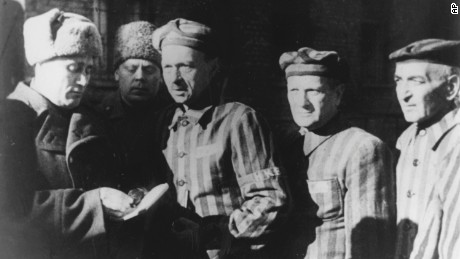
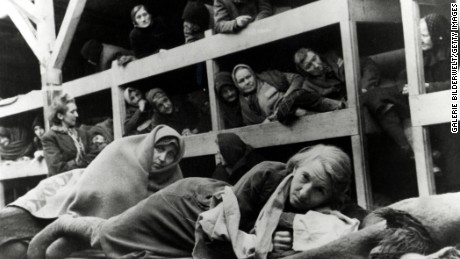
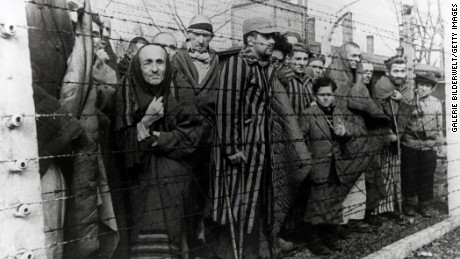
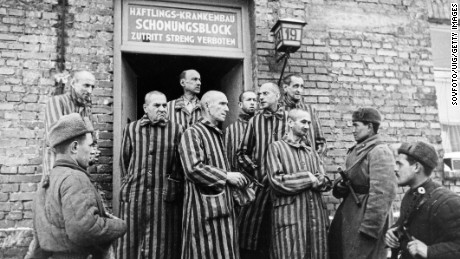
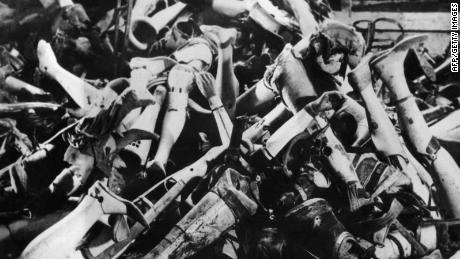
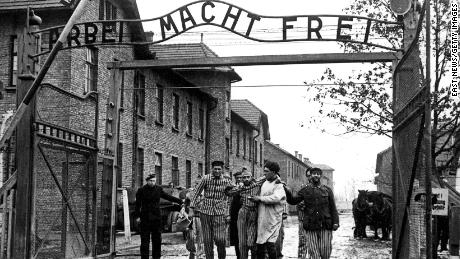
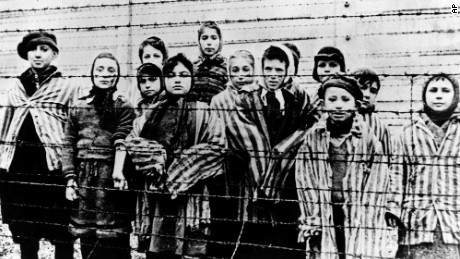
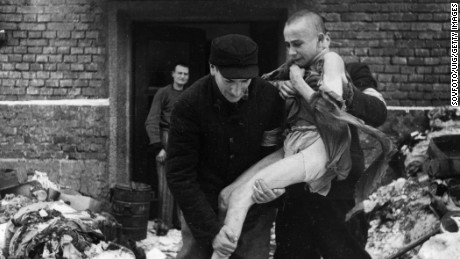
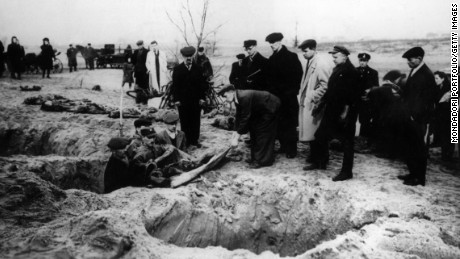


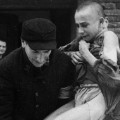
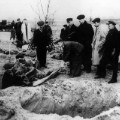
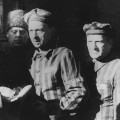

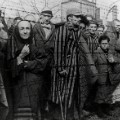

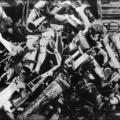
No comments:
Post a Comment